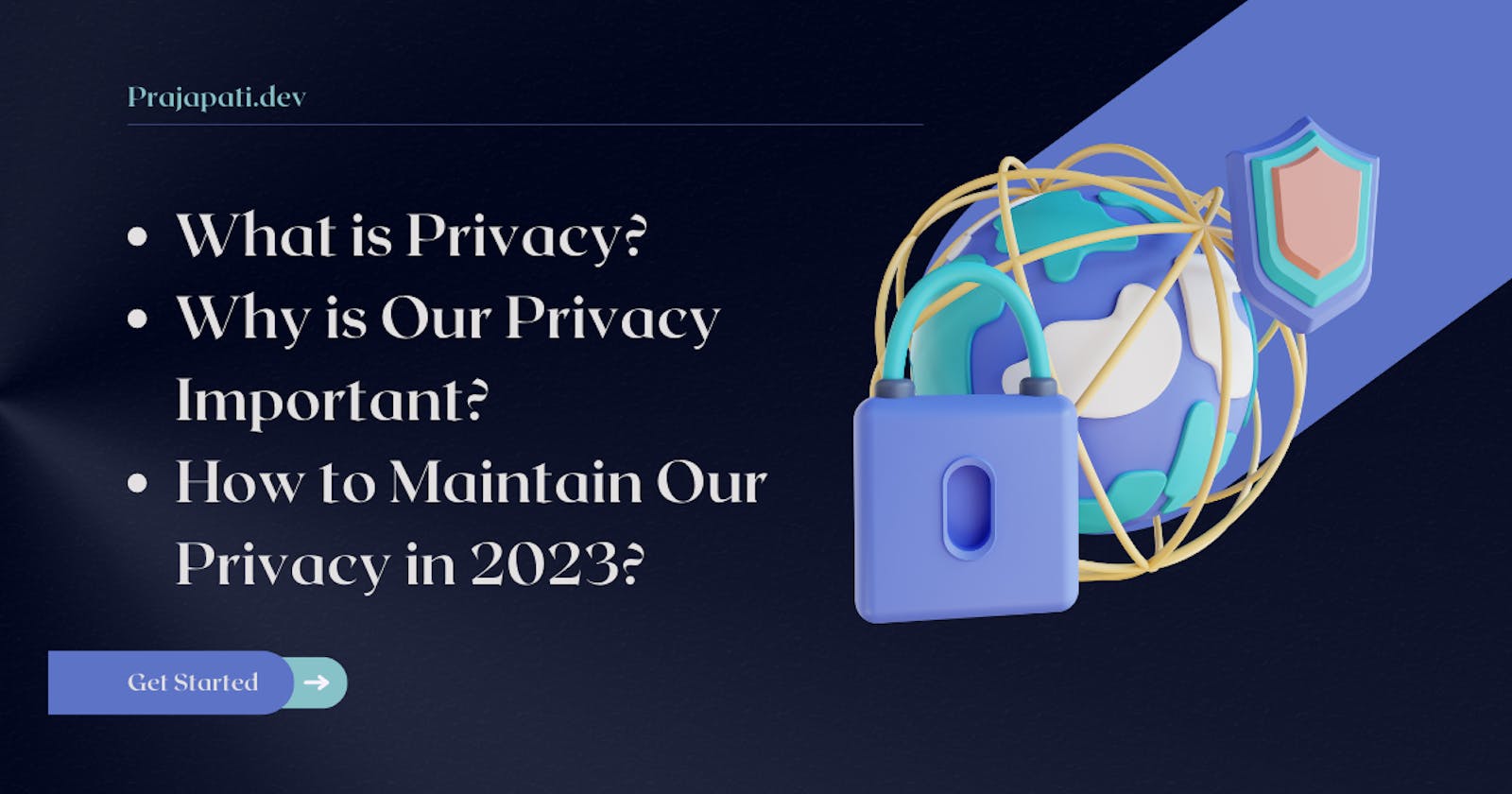What is Privacy?
Privacy is a fundamental right that allows individuals to control their personal information and how it is used. It is an important part of our lives and helps us keep our independence and pride.
Privacy is often thought of in terms of personal space and physical boundaries, but it also includes our personal information, such as our name, address, and phone number. Since technology and the internet are becoming more common, privacy is also becoming more significant in the digital world.
There are different types of privacy, including physical privacy, financial privacy, and online privacy. Physical privacy is the right not to be watched or recorded without your permission. Financial privacy is about keeping information like bank account numbers and credit card numbers safe. Online privacy means keeping your personal information safe when you share it online, like on social media, or when you shop online.
In today's world, it is essential to protect our privacy. Since personal information is always being collected and shared, it is easy for our privacy to be broken. To protect our privacy, it is important to be aware of how our personal information is being collected and used and to take steps to safeguard it. This can include using strong passwords, being cautious about what information we share online, and using privacy tools such as virtual private networks (VPNs) and encryption.
Privacy is a complicated issue with many parts, and people need to understand how important it is and take steps to protect it. By valuing and protecting our privacy, we can keep our independence and dignity in a world that is becoming more and more connected.
Why is Our Privacy Important?
Privacy is a fundamental right that allows individuals to control their personal information and how it is used. It is a significant part of our lives and helps us keep our independence and pride.
There are many reasons why our privacy is significant. Some of the most significant reasons include:
Personal autonomy: Privacy allows us to make our own choices about our lives without interference from others. It gives us the freedom to express ourselves and pursue our interests without fear of being judged or monitored.
Security: Protecting our personal information helps prevent identity theft and other types of fraud. It is significant to keep our financial and personal information private to avoid being targeted by scammers or having our accounts compromised.
Mental and emotional well-being: Privacy allows us to have a sense of control over our personal lives and maintain a sense of autonomy. It can also provide a sense of comfort and security, which is essential for mental and emotional well-being.
Trust and relationships: Privacy is an essential aspect of building and maintaining trust in relationships. By respecting each other's privacy, we can build strong, healthy, and trusting relationships with others.
Fair treatment: Privacy helps ensure that individuals are treated fairly and not discriminated against based on personal characteristics, such as race, religion, or sexual orientation. It allows us to be judged based on our actions and abilities, rather than our characteristics.
In short, privacy is important because it lets us keep our independence, safety, mental and emotional health, trust in relationships, and fair treatment. It is essential to value and protect our privacy to lead healthy, fulfilling lives.
How to Maintain Our Privacy in 2023?
With the constant collection and sharing of personal information, it is more important than ever to take steps to protect our privacy. Here are some tips for maintaining your privacy in 2023:
Use strong passwords: One of the most basic but effective ways to protect your privacy is to use strong, unique passwords for all of your accounts. Avoid using the same password for multiple accounts, and consider using a password manager to generate and store strong passwords for you.
Be cautious about what you share online: Think carefully about what personal information you share online, particularly on social media. Consider using privacy settings to control who can see your posts and information, and be mindful of the types of information you share.
Use privacy tools: Various tools and technologies can help you protect your privacy online. These include virtual private networks (VPNs) which encrypt your internet connection, browser extensions that block tracking cookies, and encryption tools that protect your emails and messages.
Be aware of phishing scams: Phishing scams are attempts to trick you into revealing personal information, such as passwords or bank account details. Be cautious of emails or messages from unfamiliar sources, and never click on links or enter personal information unless you are confident the source is legitimate.
Keep your software and devices up to date: It is important to keep your software and devices up to date with the latest security updates. These updates often include significant fixes for vulnerabilities that could be exploited to access your personal information.
By following these tips, you can help protect your privacy in 2023 and beyond. Remember that in today's connected world, you need to take steps to protect your personal information.

